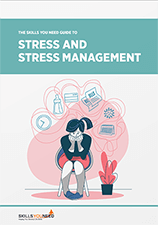The Mindful Revolution:
How Meditation De-Cluttered My Thoughts And My Life
See also: What is Mindfulness?
Let’s face it, society can be stressful. At times, the busy world we live in can feel like nothing short of controlled chaos.
Overwhelmed feelings, anxiety, and other stressors can become engrained in our lives. Workloads pile up during our work week and weekends feel shorter and shorter.
But what if I told you that there’s a way to balance these overwhelming feelings? And what if I presented you with something incredibly simple that could drastically change your life?
This is the exact impact that the mindful revolution has had on me.
Rewind to several years ago. Having graduated high school and ventured out into the real world for a year, I was finally at a place in life where I was happy and on my way to success. Or so I thought. I worked two jobs, as a chef at a decent restaurant and as a night back-stocker at a local retail store. On top of this I was a part-time student and played regularly in two bands.
Life quickly became busier than I ever imagined for a nineteen year old. I was seeing many levels of success but my young nature got ahead of me. I was quickly in way over my head.
I began experiencing a lot of unknown anxiety and depression at that time. Looking back, it seems obvious as to why I was experiencing this, but for a young adult trying to make it on their own for the first time, the truth can be about as clear as mud.
Fortunately, a good friend of mine introduced me to meditation that year. This allowed me to slow my gears, and actually process my life. This was the beginning of my own mindful revolution!
But first of all, what exactly is being mindful?
How does one achieve this level of level-headedness?
Mindfulness is simply being present in the moment and calmly analyzing the issues or stressors in your life in a controlled environment. This is most commonly achieved through simple meditation or a similar outlet.

Once you are aware of your stressors, you can experiment with what time of day works best for you and your meditation efforts.
Finding the time to meditate everyday can be difficult, especially at first. It’s all about finding a consistent time of day that works for you.
You’ll want to decide what setting is ideal for you. Try different places, indoors and outdoors. Test out what lighting is most comfortable for you and whether standing, sitting, or lying down is best. Is there any music you’d like to listen to, or is silence a personally refreshing aspect of meditation?
One thing's for sure, I noticed a huge shift in focus in my life once I started meditating every day.
I was able to pinpoint things in life that made me unhappy or uncomfortable. My room was significantly cleaner and my life seemed much more organized. I attribute this to allowing myself more time to get ahead, and primarily more time to just think clearly and process my goals and aspirations both long-term and day-to-day.
To put this all into perspective, the main advantages of being mindful I've noticed in my own life are:
- I feel more motivated both at work and at home
- Less anxiety/depression
- Increased happiness and optimism, as well as self-acceptance
- Better organization in life
- I am sick less frequently, likely due to a stronger immune system
- Improved problem solving skills and self-control
- Much more centered in my interests, increased focus
- My sleeping patterns became more regular, thus increasing my alertness and restfulness
If you are struggling to find time or get frustrated for any reason, take a step back. Keep experimenting until you’ve developed a routine that is fluid. Accept your small wins and build on them. Take a gradual approach to mindfulness.
Becoming more mindful has been a consistent way for me to get over many challenges. It’s allowed me to be more organized, and focus and prioritize my life.
On top of this I found a great mechanism to cope with my anxiety and depression in a natural, collected way.
Further Reading from Skills You Need
The Skills You Need Guide to Stress and Stress Management
Understand and Manage Stress in Your Life
Learn more about the nature of stress and how you can effectively cope with stress at work, at home and in life generally. The Skills You Need Guide to Stress and Stress Management eBook covers all you need to know to help you through those stressful times and become more resilient.
About the Author
Jay Taylor is a student and musician from the Northwest who is passionate about the future of our youth, our planet, and the well-being of others.


